Do Cats Eat Rabbits? Everything You Need to Know
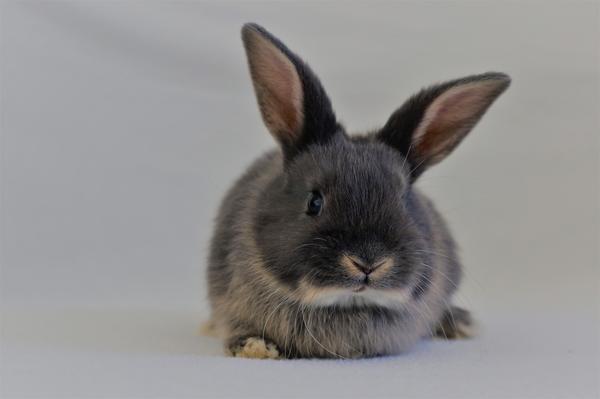
Ever wondered if cats eat rabbits?
I mean, it's their natural instinct, right?
And maybe you're sitting there, scratching your head, pondering the reasons behind this fascinating behavior.
Well, let's dive into this topic together.
Buckle up! 🤩
Difference Between Killing a Rabbit and Eating It
While cats may hunt rabbits for the thrill, they don't typically consume the entire animal. Cats are obligate carnivores and derive essential nutrients from animal flesh. However, some cat foods are made with rabbit meat, allowing domestic cats to have a rabbit-based diet.
Killing a rabbit and eating it are not the same, especially for cats.
Cats are natural-born hunters with sharp claws and a predatory instinct.
They chase after rabbits more for the thrill than for sustenance.
Usually, cats don't eat entire rabbits when they catch them.
Being obligate carnivores, cats derive their essential nutrients from animal flesh.
While cats may nibble on some rabbit parts like the head, it's not a substantial meal.
But wait!
Some cat foods are made with rabbit meat, and many cats enjoy them.
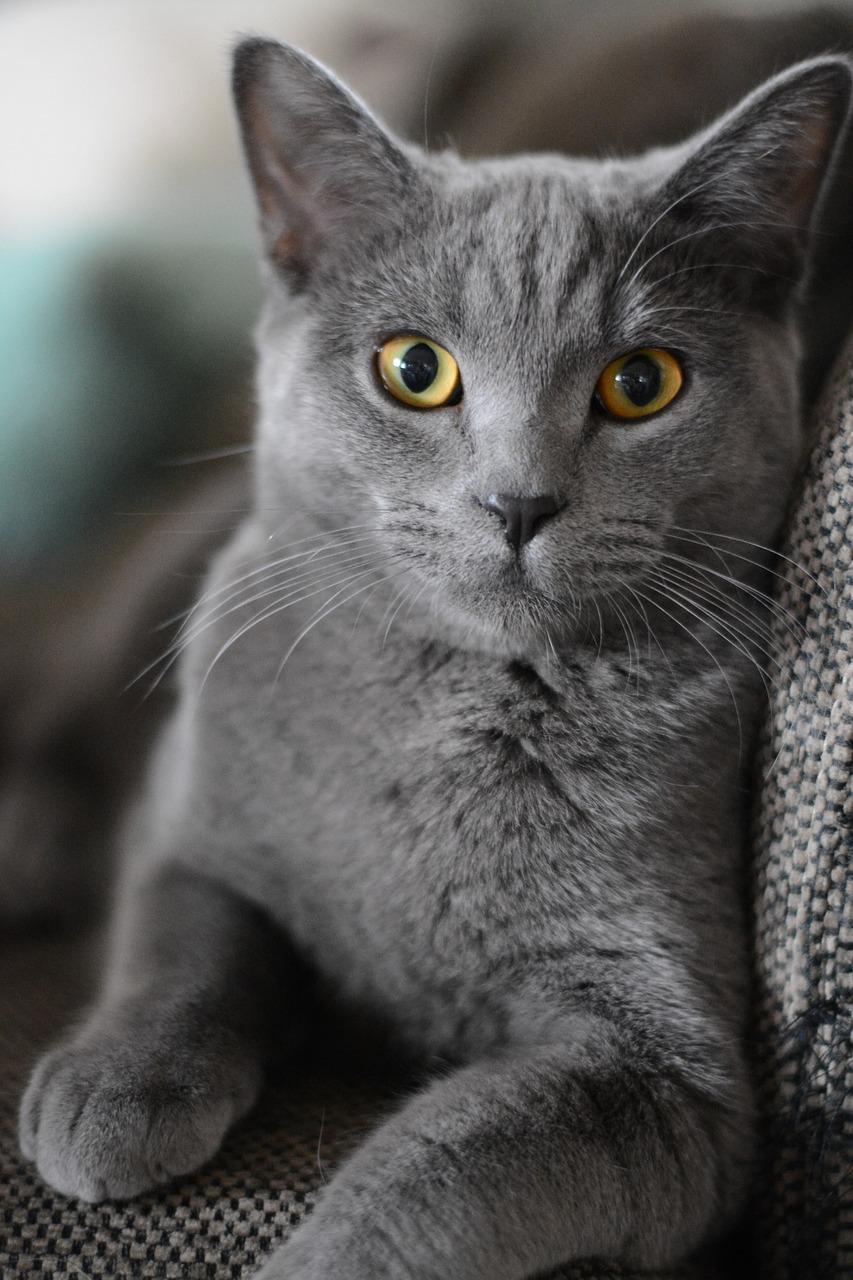
So, although wild cats don't often consume rabbits, domestic cats can have a rabbit-based diet.
Domesticated cats may still have the natural urge to hunt rabbits, even if they are well-fed.
For feral and wild cats, consuming the animals they kill is crucial for survival.
Unlike house cats, they don't have regular meals provided and rely on catching prey to stay alive.
Cats killing rabbits?
It's all about the thrill.
Cats eating rabbits?
Sometimes.
Feral cats devouring rabbits?
A matter of survival.
Main points I'll expand upon further down this article:
- Cats are obligate carnivores and have a strong instinct to hunt.
- Cats may hunt and eat rabbits, along with other small mammals and birds.
- Domesticated cats also enjoy hunting and should be provided with appropriate toys and enrichment.
- Cats pose a significant threat to birds and mammals, causing billions of deaths each year.
- Eating rabbits can be dangerous for cats as they can contract tularemia, a serious disease.
- Cats can also get sick from harmful microbes found in rodents' waste when they eat rabbits.
- Cat saliva contains bacteria that can infect prey, potentially leading to death.
- Cats may play with injured rabbits instead of quickly killing them, so intervention is necessary.
- Avoid gardens and respectfully bury deceased rabbits that cats have not consumed.
- Cats may bring dead rabbits to their owners as a way to show their hunting skills or as a token of appreciation.
Cats' Hunting Habits: Feral Felines' Prey Preference Revealed
You need to know that cats love hunting and they have their own peculiar preferences.
Here's what you should know:
- Cats are meat eaters, plain and simple. They can't survive without it, so their meals consist mostly of small animals and birds.
- Whether they're domesticated or feral, all cats have this instinctive urge to hunt. It's not just about filling their bellies, but also about showing off their skills and relishing the chase.
- Cats are naturally drawn to anything that moves, which is why rabbits and other rodents become their prime targets.
- Trying to train a cat to stop hunting live prey? Good luck with that. Their desire for catching critters is simply too strong to resist.
- However, there is an alternative solution. You can redirect their hunting drive by providing mental stimulation in the form of stuffed toys, puzzles, and interactive games.
- These substitutes help shift their focus away from real-life prey, reducing the impact on birds and small mammals around your neighborhood.
The hunting habits of cats may be fascinating, but you need to keep both them and wildlife safe. 😺
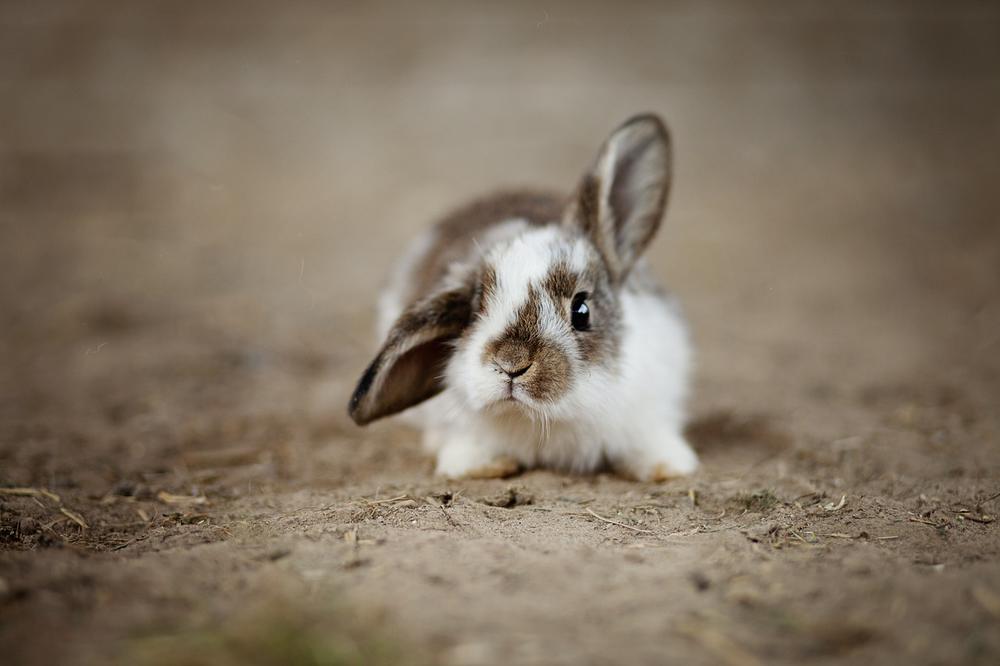
Now that you know about cats' hunting habits and their preference for small animals and birds (as mentioned in my blog post), you may have questions about whether it's safe for your cat to eat a bird.
Don't worry, I've got you covered! If you're curious about the answer, I highly recommend checking out my article Do Cats Eat Birds.
There, you'll find all the information you need to understand this behavior and ensure the safety of both your feline friend and the avian creatures.
Can Cats Get Sick From Eating Rabbits?
Can cats get sick if they eat rabbits?
Yup, they sure can.
Here's why:
- Cats can catch diseases and parasites from eating rabbits, like tularemia and bacterial infections. If you think your cat chowed down on a sick rabbit, pull them out of that situation and take them to the vet pronto.
- Rodents leave behind not-so-nice germs in their poop, which can make cats sick if they munch on rabbits. When a cat kills a rabbit, both cats and humans have a higher chance of getting tularemia. That's why it's important to get your furball some medical help ASAP.
- Your cat's saliva has bacteria that can infect their prey, putting your kitty at risk of keeling over. If your cat scarfs down a rabbit, the smart move is to have them tested and treated for possible diseases.
To keep cats and humans safe, it's super critical to stop cats from gobbling up wild game like rabbits.
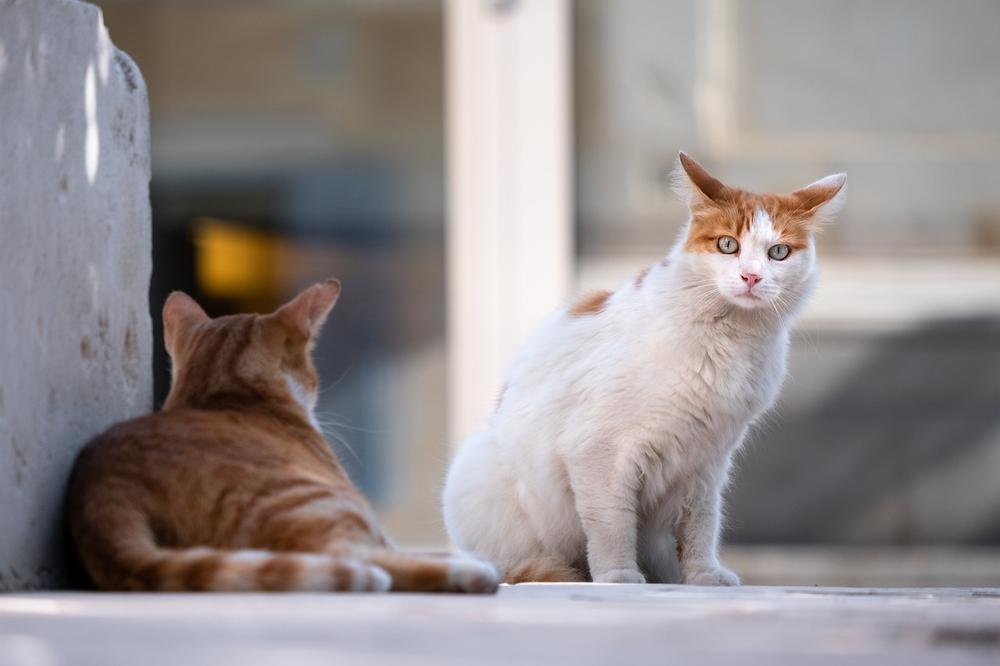
Rabbits carry lethal diseases, including tularemia, which can also spread to us humans.
So, if you live in an area with a bunch of rabbits hopping around, be extra careful with your feline friend, especially if they start eyeing those bunnies for a snack.
But it's not just the potential for illness that makes cats eating rabbits dangerous.
The very act of their bite can prove fatal – let me explain how it works...
Can a Cat Bite Kill a Rabbit?
A cat's bite is no joke for a rabbit.
Those sharp teeth and powerful jaw muscles of cats can cause serious injuries or even be fatal.
These little predators are a real danger to smaller animals like rabbits.
It's not just the physical damage they inflict, but also the poison that can seep into those tiny bodies.
The cat's deadly bite can unleash havoc and ultimately lead to the untimely demise of these small creatures.
So if you have a fluffy companion hopping around, ensure to keep them safe from those feline fangs.
Actions to Take when Your Cat Catches a Rabbit
If your cat catches a rabbit, here's what you should do:
- Split up the cat and the rabbit right away. It's not good to leave them alone because it can be dangerous for both.
- Get the cat's attention away from the rabbit or keep the cat in a separate area. This gives the rabbit a chance to escape since cats tend to play with injured rabbits instead of killing them quickly.
- If the rabbit is still alive, make sure you bring it to a proper vet for care. This is important so it can recover and be well taken care of.
- If the rabbit has already died and the cat hasn't eaten any part of it, bury the rabbit respectfully in a safe place. Don't bury it in gardens to avoid attracting other animals.
Acting fast is really important when dealing with these situations.
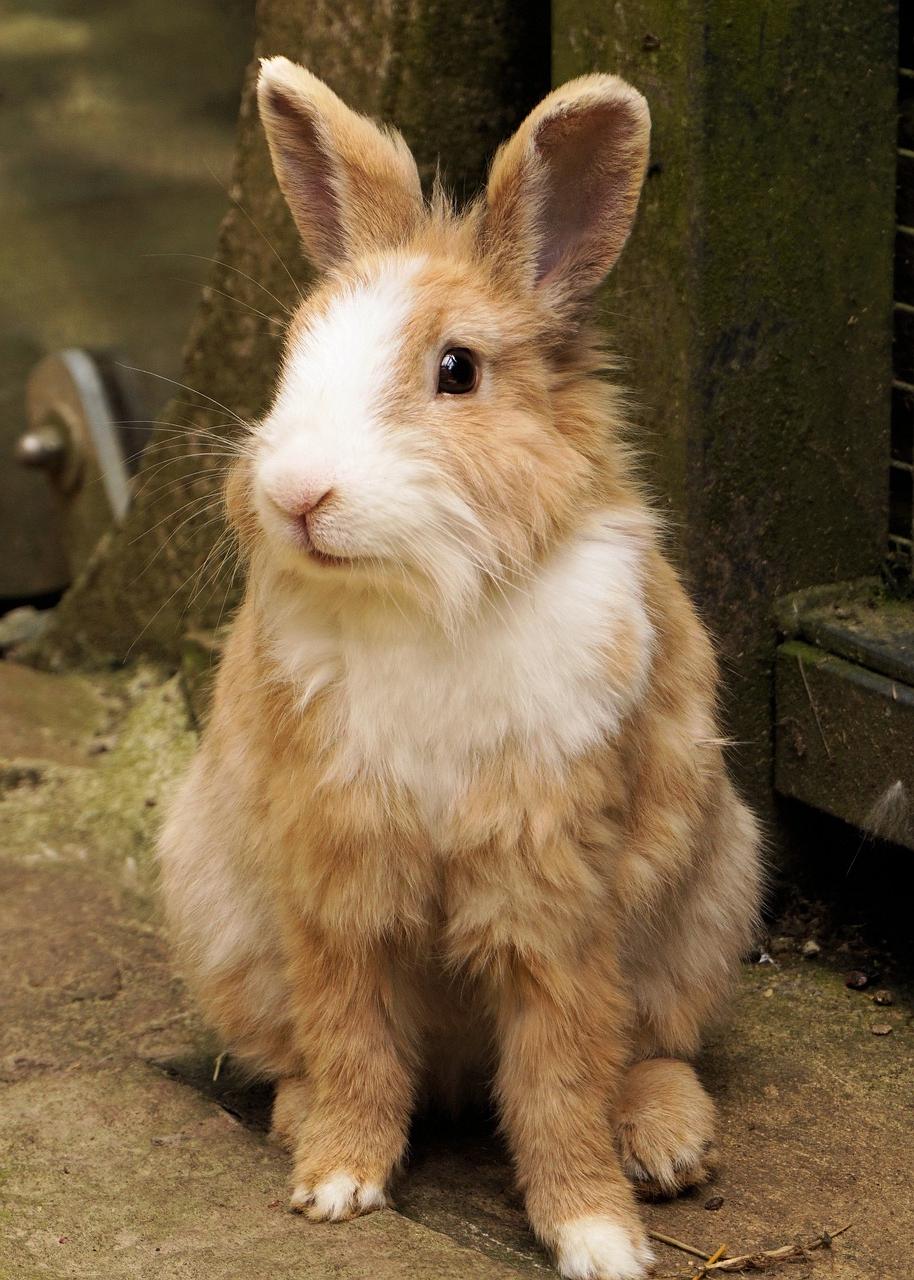
Make sure you prioritize the safety and well-being of both your cat and the rabbit.
Why Does My Cat Bring Me Dead Rabbits?
When your cat brings you a dead rabbit, it might be odd or even jarring at first.
You might ponder why your furry buddy would do such a thing. Well, let me tell ya, it's all about their instincts and huntin' skills.
Cats are born hunters, and bringin' back prey to their owner is just their way of showin' off their talent and smarts.
It's like they're sayin', Look what I caught for ya!
But there's another reason...
Your cat sees ya as part of their pride, their family.
By givin' you a dead rabbit, they're actually showin' loyalty and trust.
You should feel special!
This behavior can also be viewed as a gift, appreciatin' all the love and care ya give 'em. In the wild, cats often share their kills with others in their crew, so consider yourself part of their pack.
So next time your kitty pal presents a lifeless rabbit on your doorstep, remember it's their natural instincts, loyalty, and gratitude in action.
Just make sure to acknowledge their gesture without encouragin' more huntin' by playin' and lovin' 'em plenty!
Ways to Safeguard Your Rabbit from Stray Cats
Here's how you can keep your rabbit safe from stray cats in 10 simple steps:
- Get wildlife services involved to deal with those pesky strays in your neck of the woods.
- Reach out to wildlife services if you need a helping hand dealing with feral cats.
- Make sure you keep your rabbits confined in a secure and enclosed area, you know, like Fort Knox but for bunnies.
- Show some love and respect to your fluffy friends because apparently, cats are less likely to attack when they see that warm connection.
- Build a cat-proof fortress around your rabbits using sturdy metal fencing as your armor. 🛡
- When it comes to kitties, it's best to keep them indoors or in areas where they can't escape and roam freely.
- Stop cats from hunting by putting them on house arrest—figuratively, of course.
- Keep disease transmission risks at bay by taking precautions against shared illnesses between cats and rabbits, because nobody wants sick pets.
- Introduce Felix and Thumper slowly, while keeping a watchful eye over their initial interactions. We don't want any Tom & Jerry drama unfolding!
- Give your rabbits the good life they deserve—a safe environment, proper care, and regular checkups with the doc.
And don't forget, invest in a top-notch hutch or cage that ensures no unwanted battles with cats and keeps your bunnies happy and healthy.
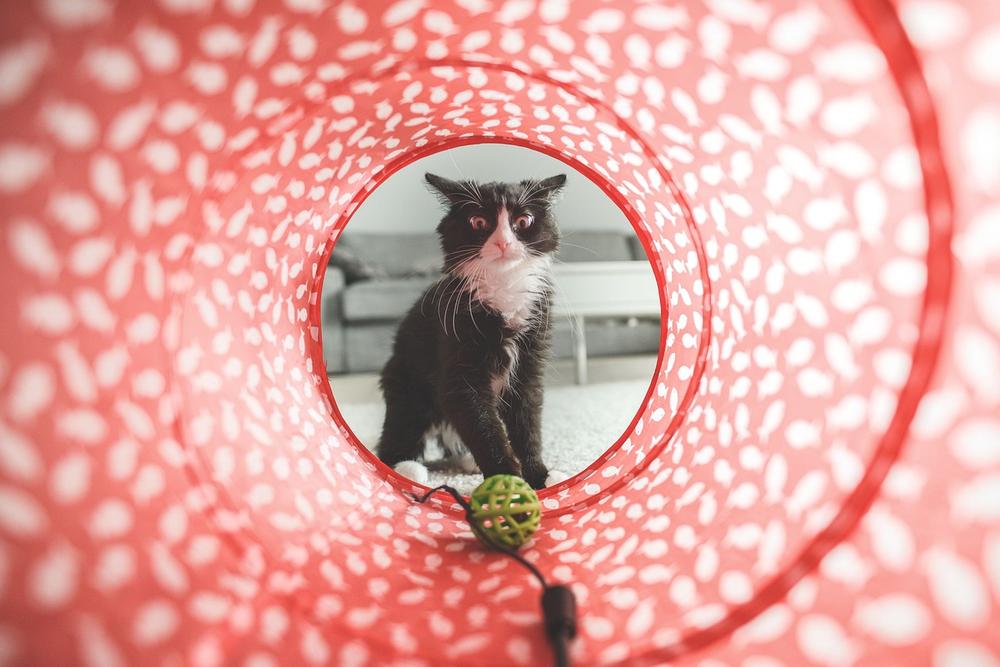
Taking these steps will ensure your beloved rabbits live a life that's both safe and full of hoppy moments!
And that wraps up today's article.
If you wish to read more of my useful articles, I recommend you check out some of these: Do Cats Eat Caterpillars, Do Cats Eat Ants, Do Cats Eat Ants, Can Cats Eat Squid, and Can Kittens Drink Human Breast Milk
Talk soon,
-Sarah Davis